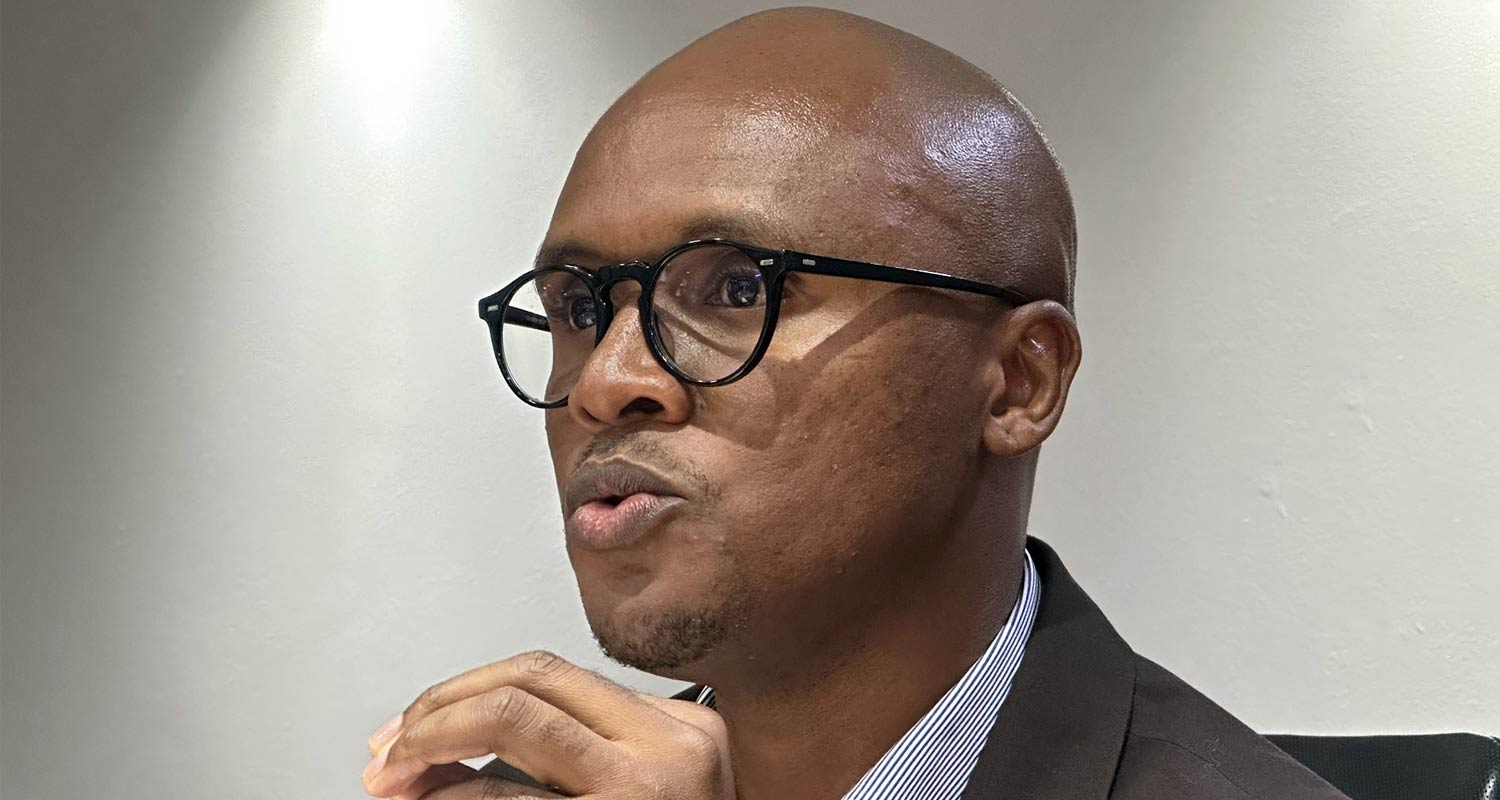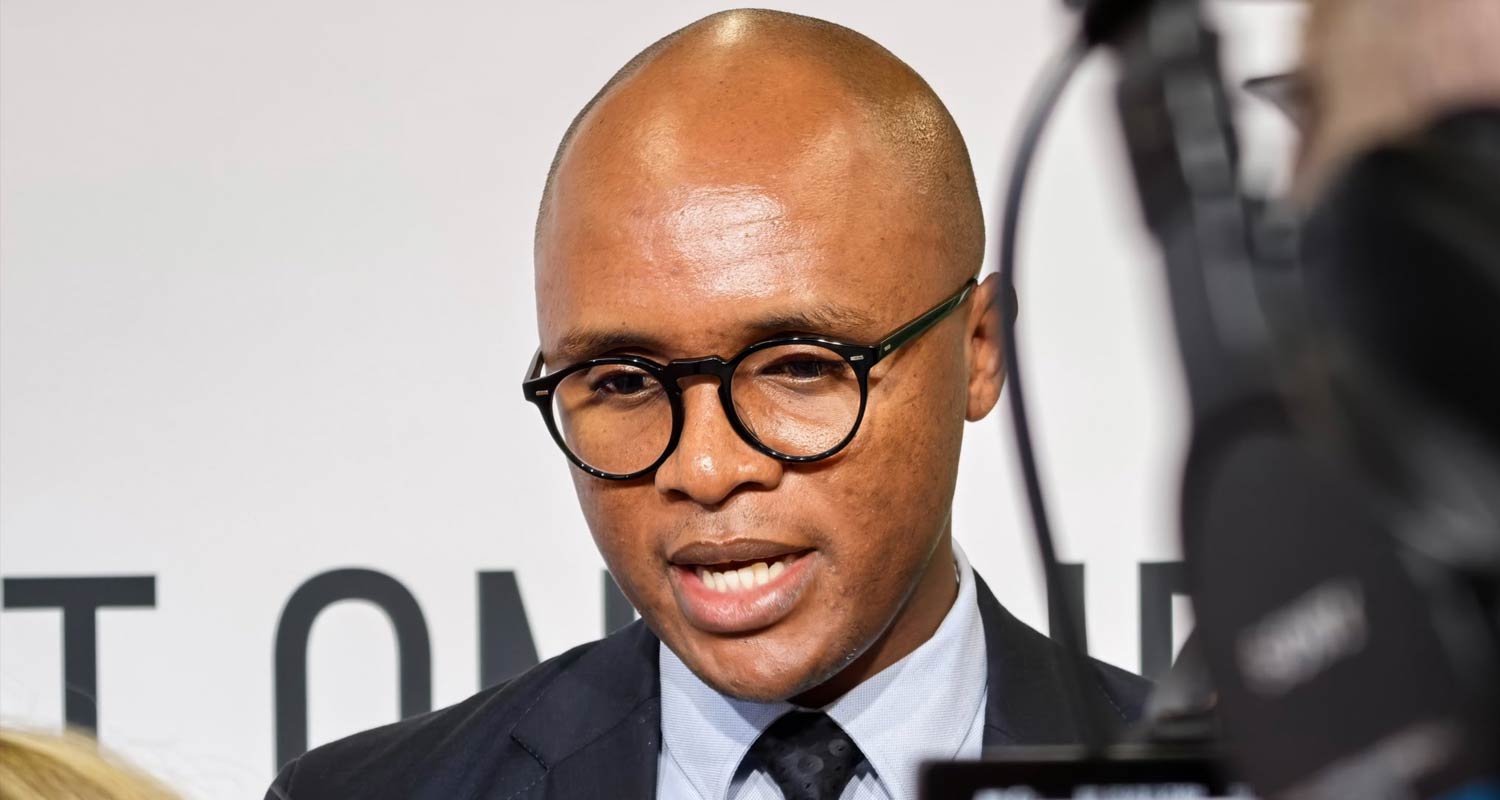Communications minister Solly Malatsi has said he and his department are making steady progress in resolving the “complex issues” within his portfolio but also admitted that some things are taking longer than they should.
Fifteen months after being sworn in to lead the communications portfolio, TechCentral queried Malatsi’s team with pointed questions about his performance as minister thus far, noting many unresolved challenges.
Among these is the broadcast digital migration project, which is yet to find a workable way forward following Malatsi’s March loss in court to broadcaster e.tv and industry lobby groups Media Monitoring Africa (MMA) and the SOS Support Public Broadcasting Coalition.
In TechCentral’s latest report on the matter, MMA and the SOS Coalition accused the department of misleading parliament about “ongoing communications” regarding the matter.
The SABC Bill – withdrawn from parliament by Malatsi in November 2024 – is a month away from spending a full year in limbo. This has left South Africa’s public broadcaster plodding along without an updated funding model, leaving its executives unable to make long-term decisions to secure its sustainability. Advertisers, meanwhile, are reluctant to commit to long-term contracts while the bill remains in stasis.
Last month, the communications department announced that research and consulting firm BMI-TechKnowledge (BMIT) Group had been appointed to develop a funding model for the SABC. Even after BMIT’s work is done – a timeline for completion has not been specified – the amended SABC Bill will still have to be debated in parliament, where it has already been a bone of contention between Malatsi and his ANC counterparts in government.
Policy directive
Also hanging in the air is the completion of a policy directive on the use of equity equivalent investment programmes in the telecoms sector. The move is meant to help drive investment into the ICT sector by making it easier for foreign-owned companies operating in South Africa to comply with broad-based black economic empowerment legislation. One such investor, Elon Musk-owned satellite broadband service provider Starlink, has confirmed that is waiting in the wings, willing to make investments, but only after the legislation has been amended.
Now, in an exclusive interview with TechCentral, Malatsi has provided detailed insights on where these and other matters stand, including some of the snags that have hampered their progress and the strategies employed to fast-track results.
TechCentral: Let’s start with broadcast digital migration. There was a decision to go to court, even though the ministry – a previous minister, Khumbudzo Ntshavheni – got a bruising. Should the second court case have been avoided entirely?
Read: Trust deficit deepens in TV migration battle
Solly Malatsi: It’s one of those things where because government lost the court case, then if you look at it in hindsight you can, on the prospect of probabilities, make a determination. Our focus is on the fact that the digital migration issue has been festering for far too long. It has come at a great cost to government and caused great uncertainty to the industry.
It is important to bear in mind that the court ruled in favour of broadcasters and other organisations after I had negotiated for an extension to the [analogue switch-off] deadline with cabinet to the end of March. You will recall that when I came into office, the deadline was the end of December last year.
We are very clear that given the history of litigation on this matter, it is in the best interest of the department, government and broadcasters that we find a settlement out of court. I will confess that the process has moved very slowly.

TechCentral: The department, however, told parliament that engagements with industry stakeholders were underway but it then turned out that this was not the case.
Malatsi: The truth of the matter is that the department, and I in particular, had given a mandate that our legal representatives should engage with the legal representatives of the broadcasters. It later transpired that those engagements had not been formalised.
TechCentral: So, the issue there was with the parties who were given the instruction to engage the broadcasters?
Malatsi: We had given the instruction to our legal representatives to engage with their counterparts to establish the appetite for engagement towards a non-litigious settlement. We were equally surprised to find out [that this was not the case] because we were operating on the knowledge at all times that our legal representatives had engaged with their counterparts. It turns out those engagements were informal rather than formal.
TechCentral: Let’s move to the SABC Bill. A service provider has been appointed to develop a funding model, but it is almost a year since the bill was pulled from parliament. Is there a timeline for when the amended bill will be handed to parliament?
Malatsi: So the key missing ingredient of the SABC Bill was the funding model, and if you look at the original document, it proposed that a funding model be developed within three years of finalising the bill.
However, the urgency of the situation at the SABC means that you need an immediate guideline in terms of the funding regime, and that is why I said; rather than waiting three years to develop funding model, let us go to market and get a service provider that can help us develop one sooner.
Read: Starlink says it wants to go big in South Africa
That funding model is going to be incorporated into the bill, so that it is in a sense complete, and we don’t kick the can down the road for a key solution that is needed now, with regards to the immediate pressures the SABC is facing.
The service provider was appointed and given a three-month timeline to develop the funding model. There has been an expression of an early indication that they might need some additional time, but we are assessing that to determine how we should go forward.
TechCentral: So, are you saying that taking a year looks like it’s a long time but it’s actually better than taking three years to do it?
Malatsi: What we are doing is fast-tracking the process of developing a funding model because in the bill as it was it would have taken three years. You must also remember that to get to a point where we could appoint a service provider, we had to develop terms of reference, go to the market and advertise, assess applicant capabilities, and do the appointment in government. The process, unfortunately, has taken a couple of months, but we have done what was necessary to do it properly and not for the sake of a tick-box exercise.
TechCentral: Looking at the Post Office, then… There was some progress being made there, but there is still an outstanding issue of the R3.8-billion bailout the business rescue practitioners say is necessary for its sustainability. Is there a prospect of finding that money somewhere?
Malatsi: The reality is that government does not have that money. The view of national treasury has been that the rest of the business rescue plan should be accompanied by strategic partnerships for revenue generation.
Read: Public Service Commission agrees to Sita probe
Given the state of the fiscus, it is difficult to identify where we are going to find R3.8-billion. That is why, even as we came to office, we chose to establish a task team on private partnerships to see where the Post Office can get strategic partnerships that can lessen its reliance on government injections and also attract parties that would leverage its footprint and infrastructure to minimise costs.
On the business rescue side, there has been expression from the practitioners that most of the business rescue conditions have been satisfied. At some stage, we were able to get a R150-million virement from treasury and we were also able to get funding from the temporary employment relief scheme through the department of labour.
The process of appointing a new board is also under way. These are some key moves the department has made to ensure that post office is viable post the business rescue process.

TechCentral: Let’s talk about the draft policy directive on equity equivalent investment programmes. The deadline for response was in July. When will the directive be finalised?
Malatsi: We are very close to finalising all those responses. Remember, we got 19 000 submissions and it is very important that we go through them all individually. Even though it was very clear as the team is working through the material that some were just repeat submissions, but the assessment must still be thorough. I think in the next few weeks we’ll be able to communicate the outcome of the review of all those submissions and then finalise the policy direction for final decision making by [communications regulator] Icasa.
TechCentral: What about the State IT Agency, there was an instruction for an investigation to be launched in December last year. When will that be concluded?
Malatsi: The timeline for that investigation is a year. It is still under way and we’ll have feedback on it in December.
Read: SABC warns its future is at risk as delays to key bill drag on
TechCentral: In summary, what would you say to the criticism that you are taking too long to bring matters to a conclusion?
Malatsi: I think we are making steady progress on very complex issues that have a long history. There are instances where we have moved decisively. The policy direction is one of those, and so is the investigation into Sita.
We had a breakthrough with the removal of luxury taxes on entry point smart devices as well as amending the Sita regulations to allow departments to procure outside of Sita for their ICT needs. This was a major source of concern for many government departments.
We are moving steadily – in some instances a bit slower than we want to given the complexity of the issues – but there is positive momentum. – © 2025 NewsCentral Media
Get breaking news from TechCentral on WhatsApp. Sign up here.



